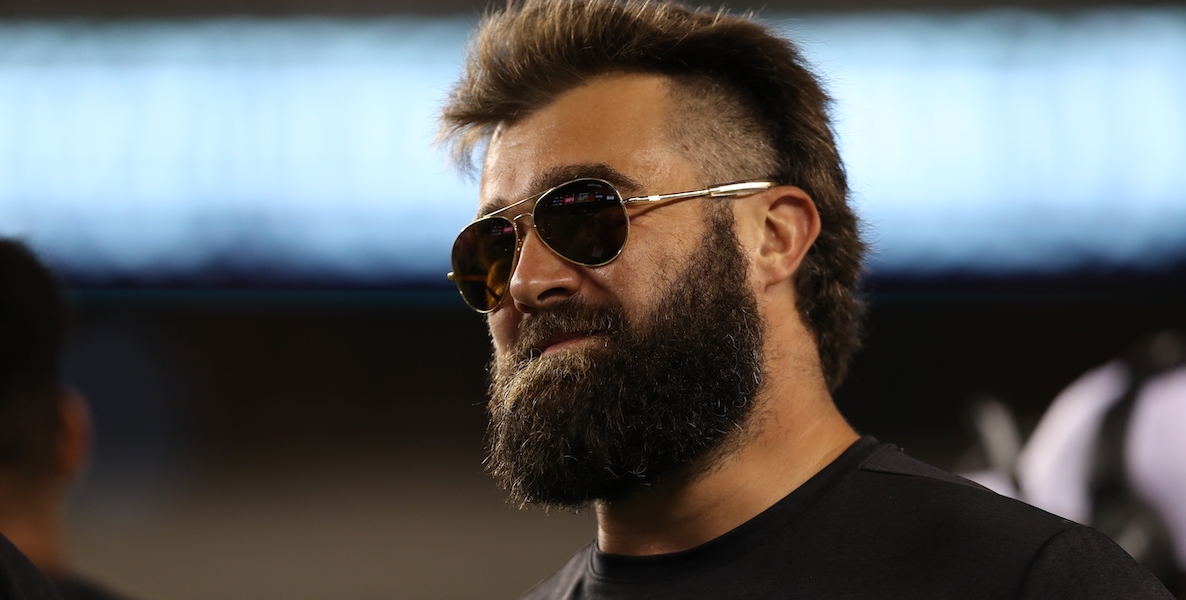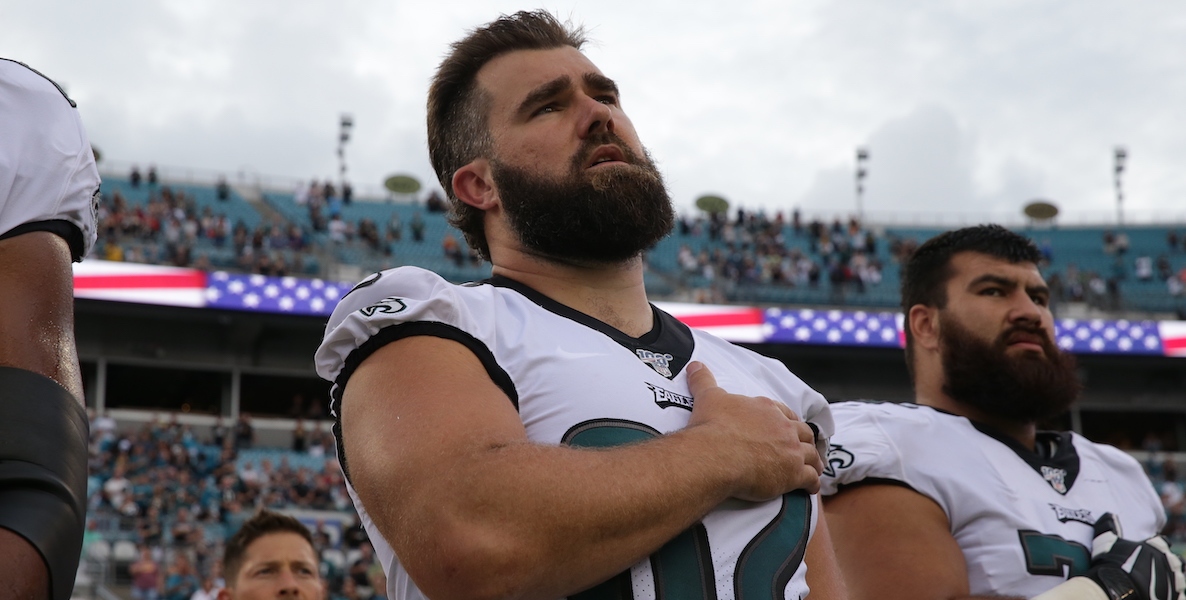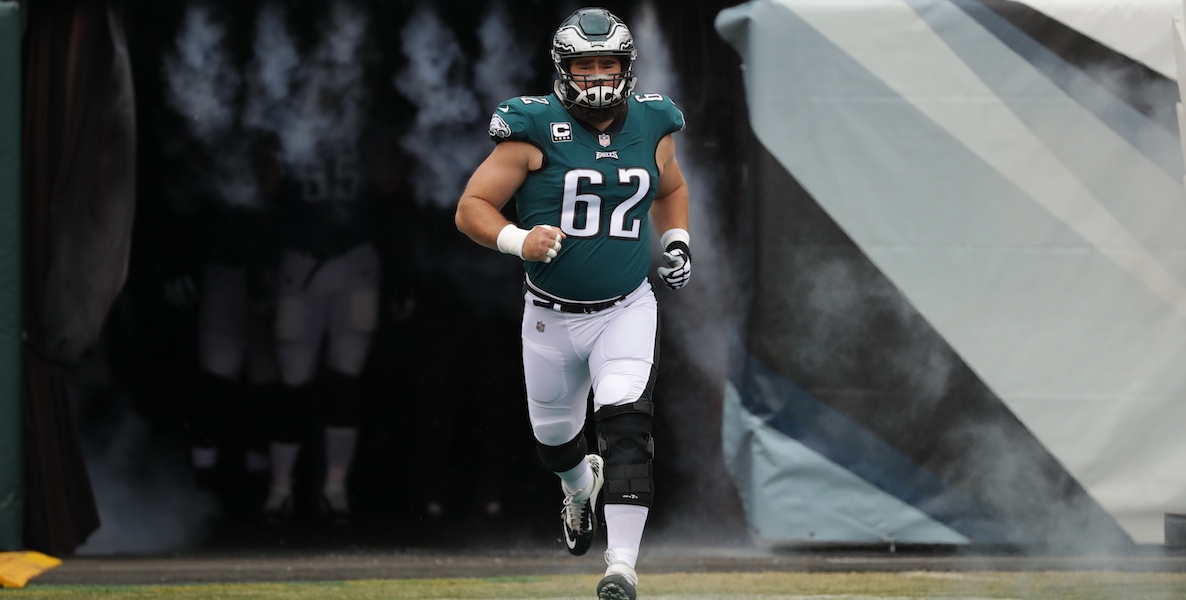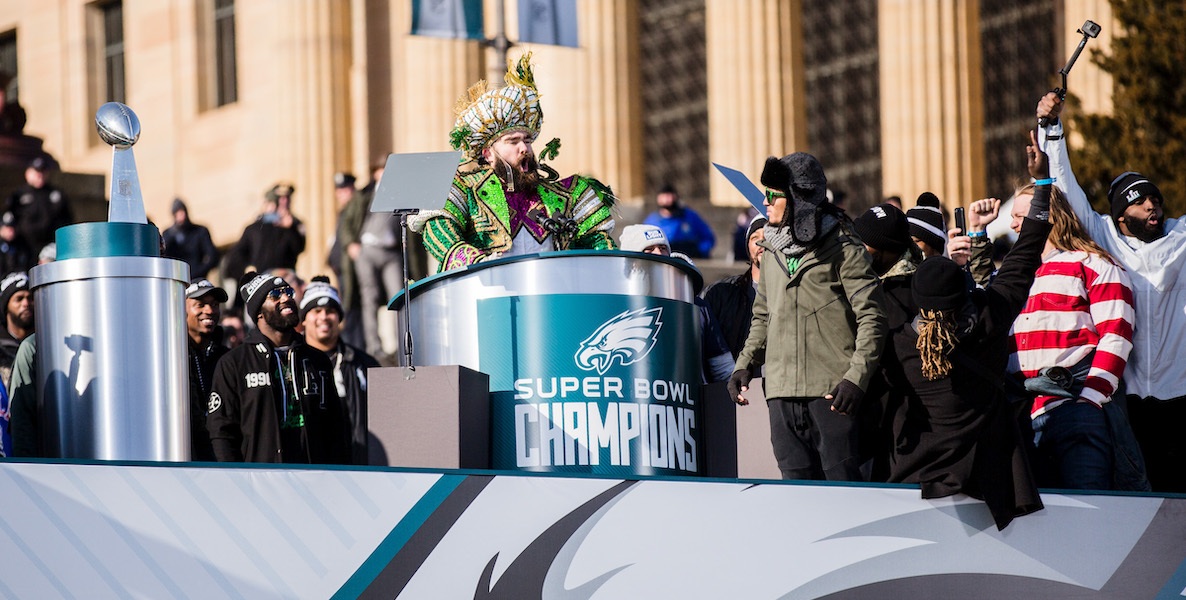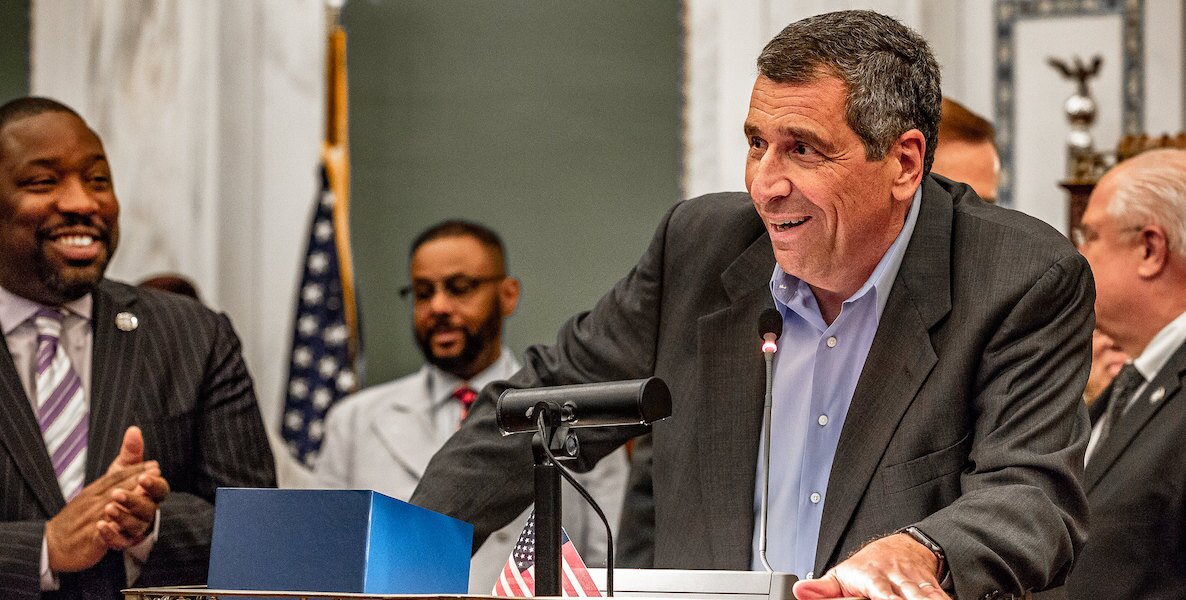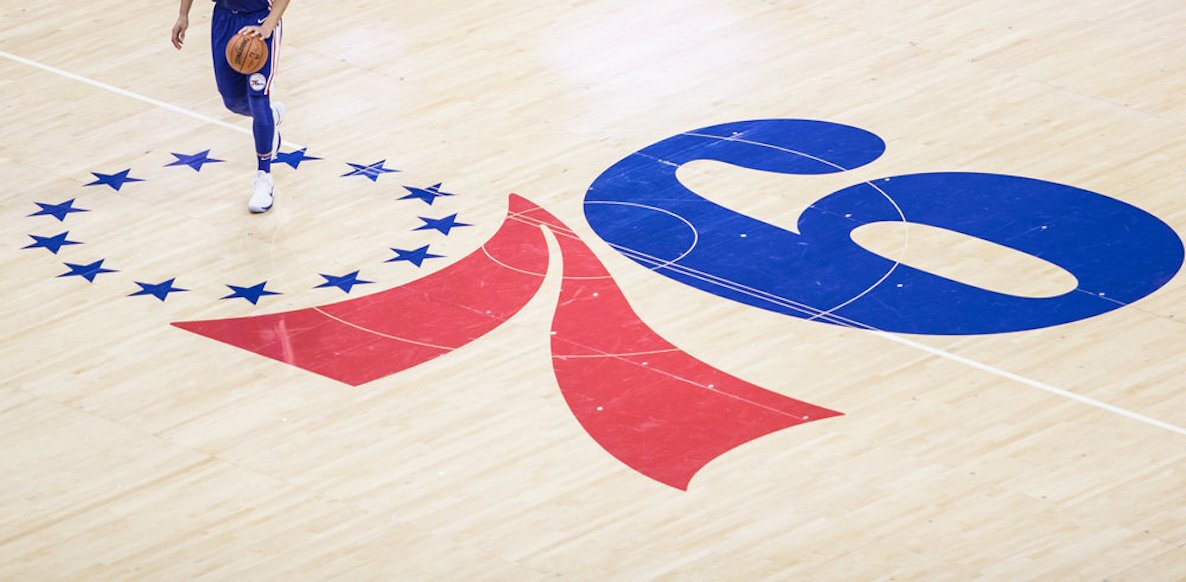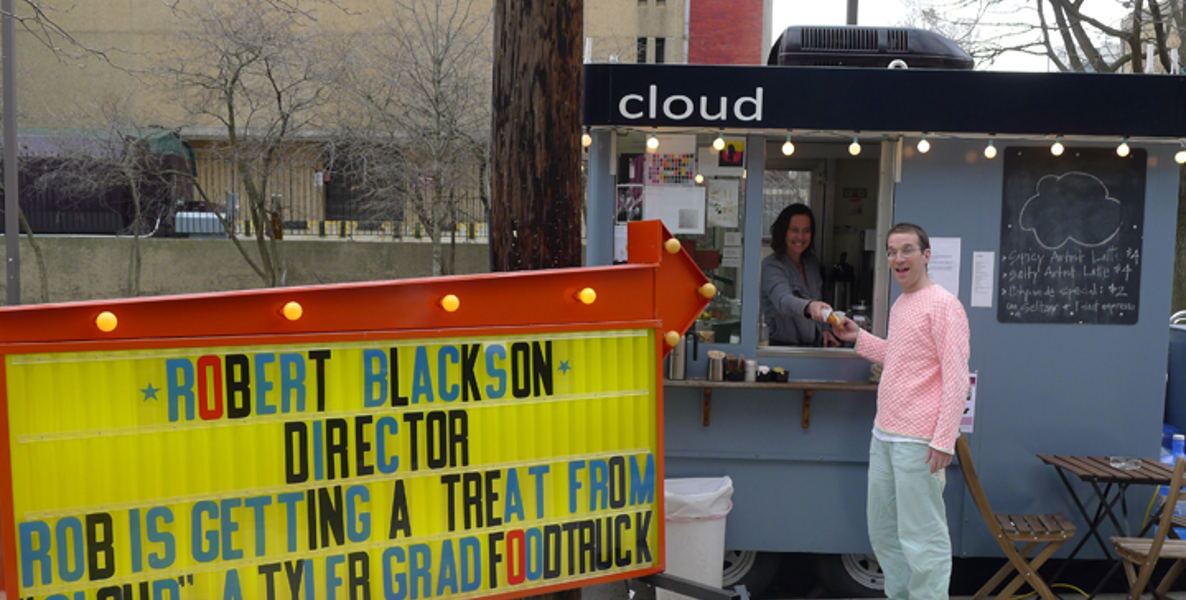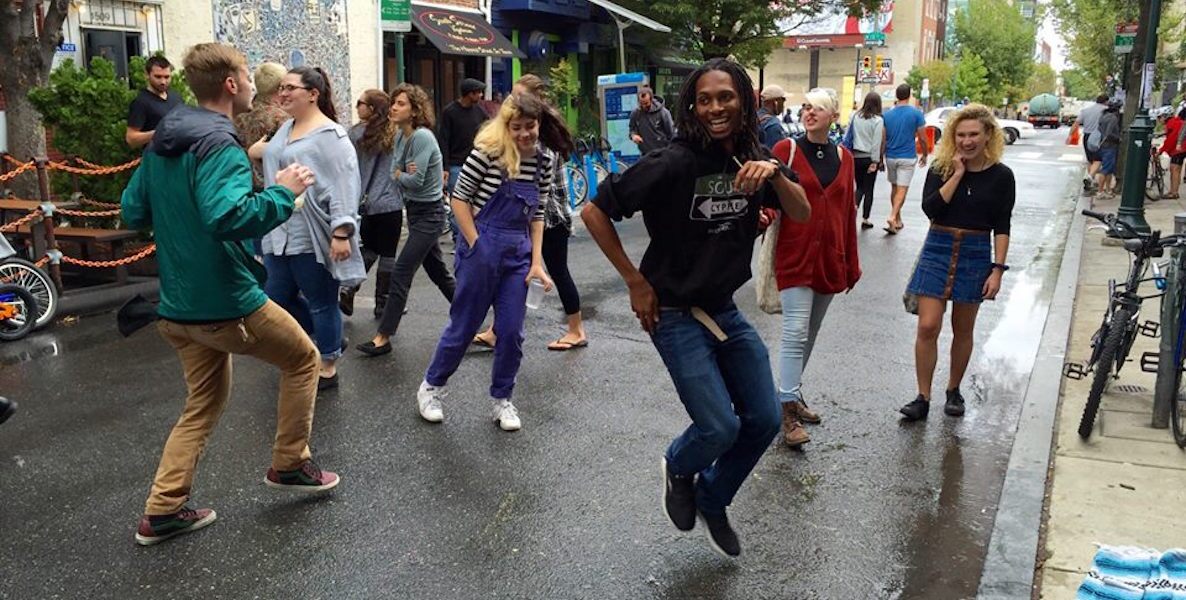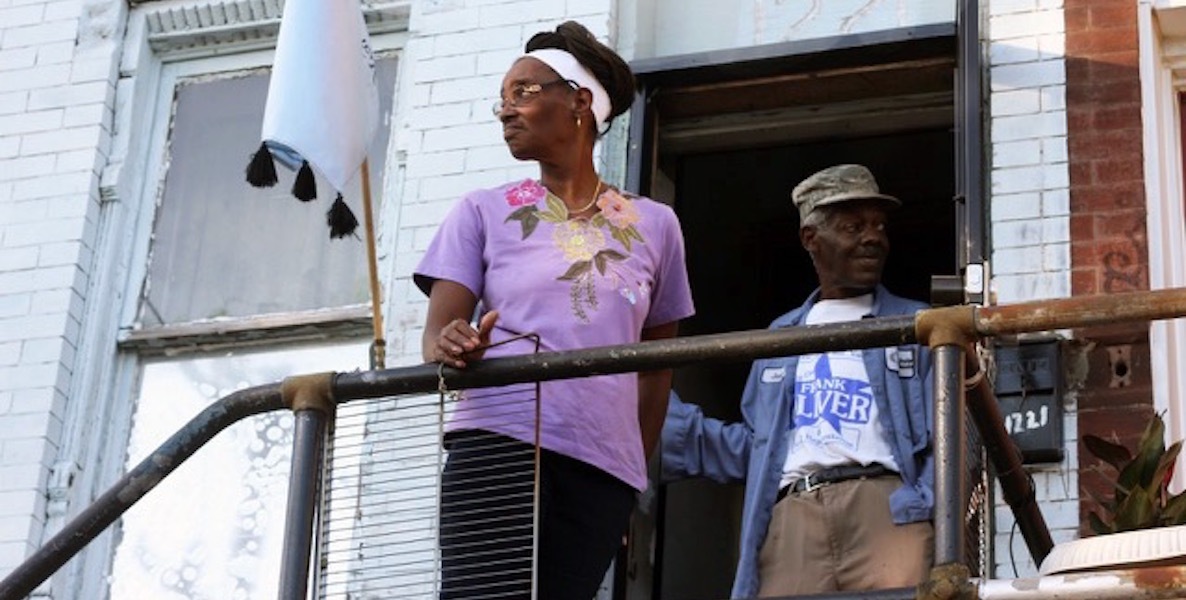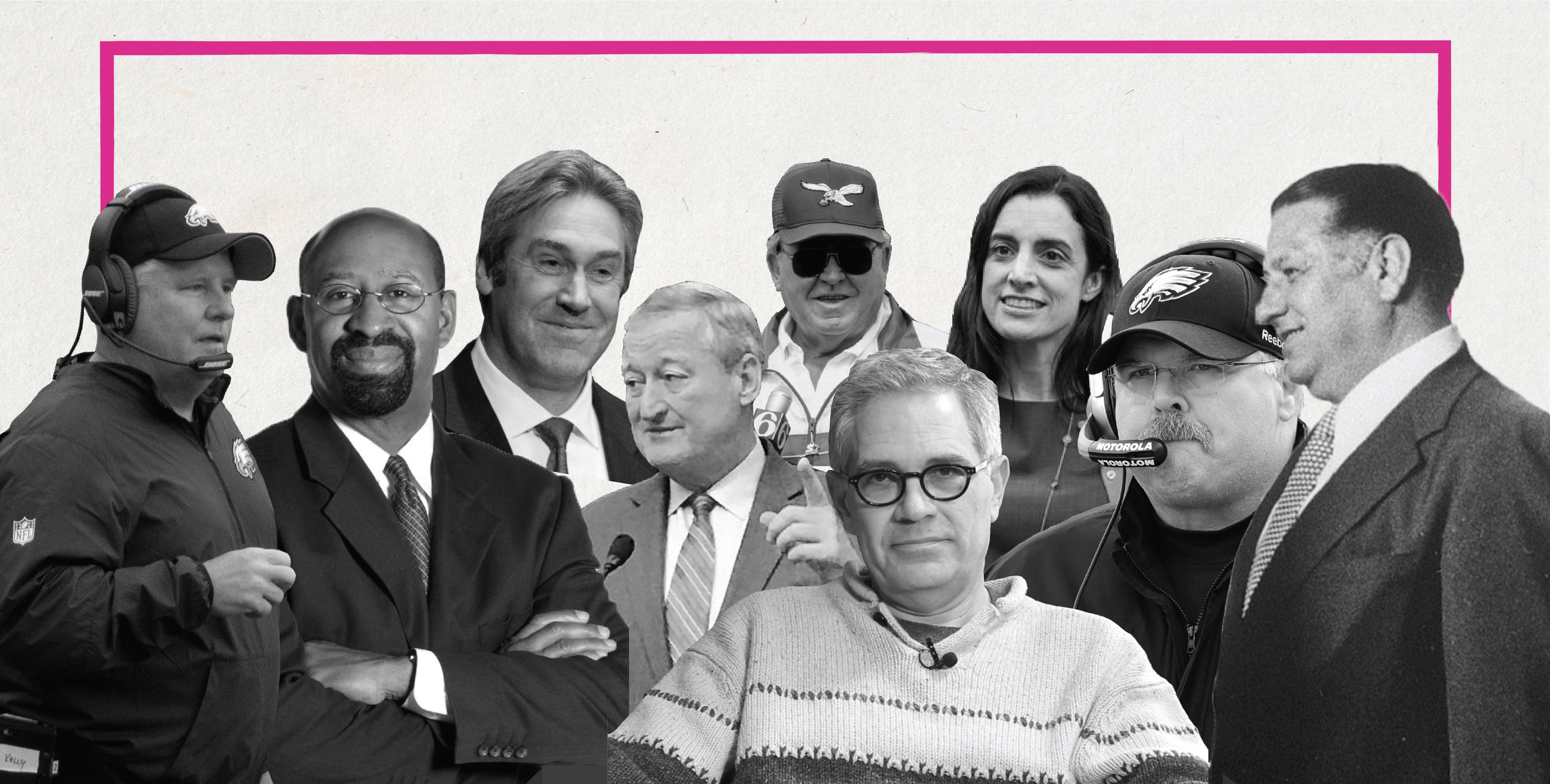Bus and train wraps, banners, flags, jerseys, agony and hope—football is back in Philadelphia. Or you may not have noticed. Because in many Philly neighborhoods, Eagles gear just never goes down.
Of all our city’s sports franchises, the Eagles are the most beloved, and speak the most to our cultural moment.

Prefer the audio version of this story? Listen to this article in CitizenCast below:

This current team in particular has become the heartbeat of the city, given their Super Bowl win as underdogs (over the Trump-affiliated, nationally hated Patriots, no less) and the team’s quirky icons, like Jason Kelce delivering that speech in full Mummers regalia and Malcolm Jenkins’ leadership on and off the field. But this is not new.
Perhaps more than any other sports franchise, in any other city, our Eagles have provided a mirror to Philadelphia’s political leadership and ethos over the last five decades—so much so that we can tell the history of Philadelphia politics through Eagles coaches.
These coaches and politicians may not have precisely shared their years in office, but the values they uphold defined their eras.
Consider this:
The Buddy Ryan–Frank Rizzo Era
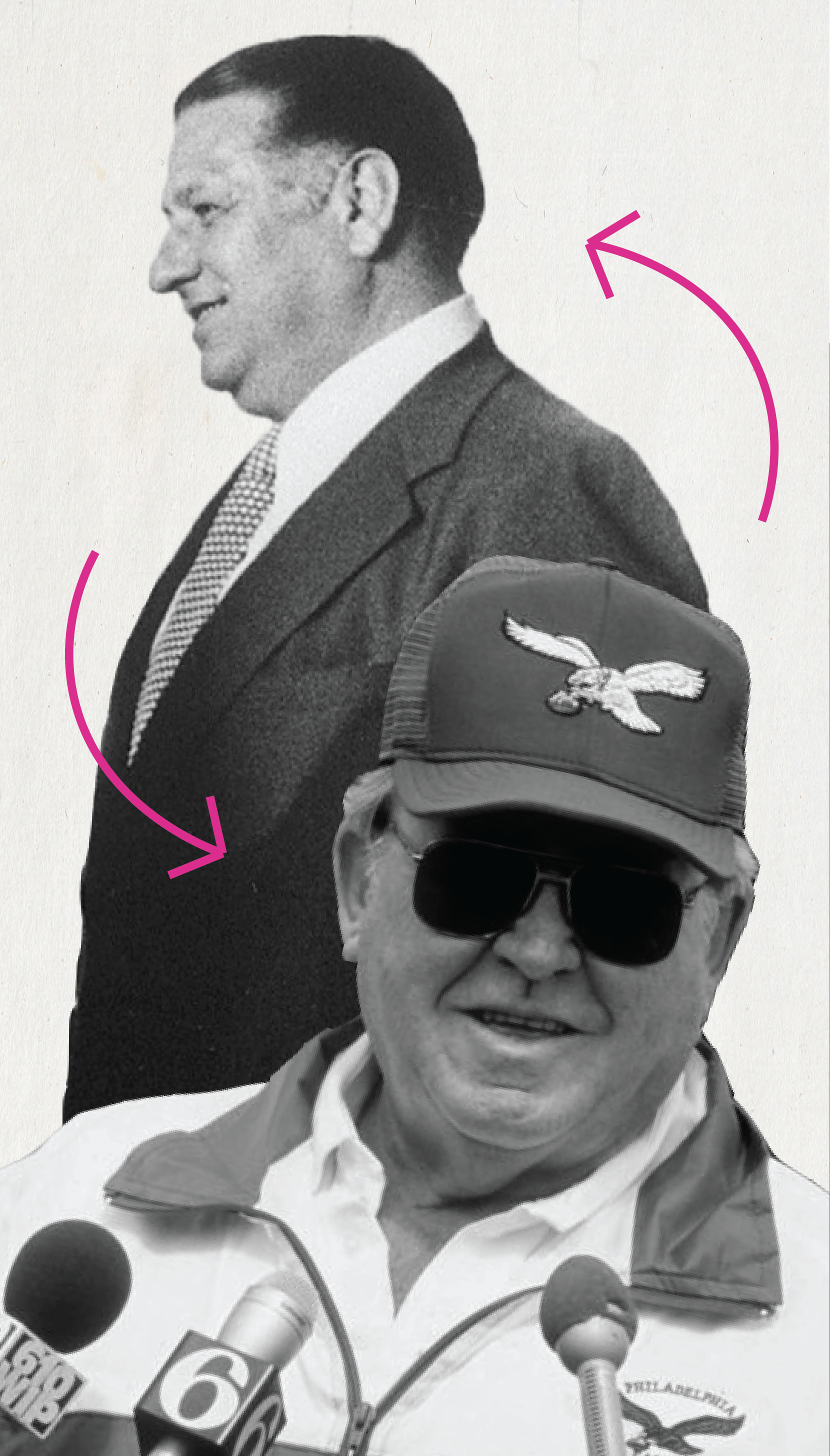
Formerly the defensive coordinator of the championship ’85 Bears, Buddy Ryan (head coach, 1986–1981) brought his tough-as-nails, working-class attitude to much acclaim in a blue-collar Philadelphia.
He famously referred to then-team-owner Norman Braman as “that guy in France,” for his tendency to spend off seasons away in his French villa.
Ryan’s teams are remembered as the best defense to never win a championship.
Two games that embody “smash-mouth” football sum up Ryan’s tenure: “The Bounty Bowl” in 1989, where Ryan offered cash incentives to any player who could injure Cowboys players (a similar incident in 2011 resulted in major suspensions for the New Orleans Saints); and “The Body Bag Game” in 1990, that saw nine Redskins players, including the quarterback and his backup, leave the game with injuries.
While serving as police chief commissioner, Frank Rizzo (mayor, 1972–1980) earned the nickname “The General” for his authoritative management and brutish behavior.
His Mayoral campaigns were built on slogans like, ”I’m asking white people, and blacks who think like me, to vote Frank Rizzo. I say vote white,” or “Just wait after November, you’ll have a front row seat because I’m going to make Attila the Hun look like a faggot.”
Rizzo’s mural in the Italian Market and statue in front of the Municipal Services Building continue to stir debates that encapsulate this era of Philly: Protestors see them as symbols of a brutally racist era of Philadelphia, while his still-devoted supporters see a historical record of the blue-collar roots of this city.

The Andy Reid–Michael Nutter Era
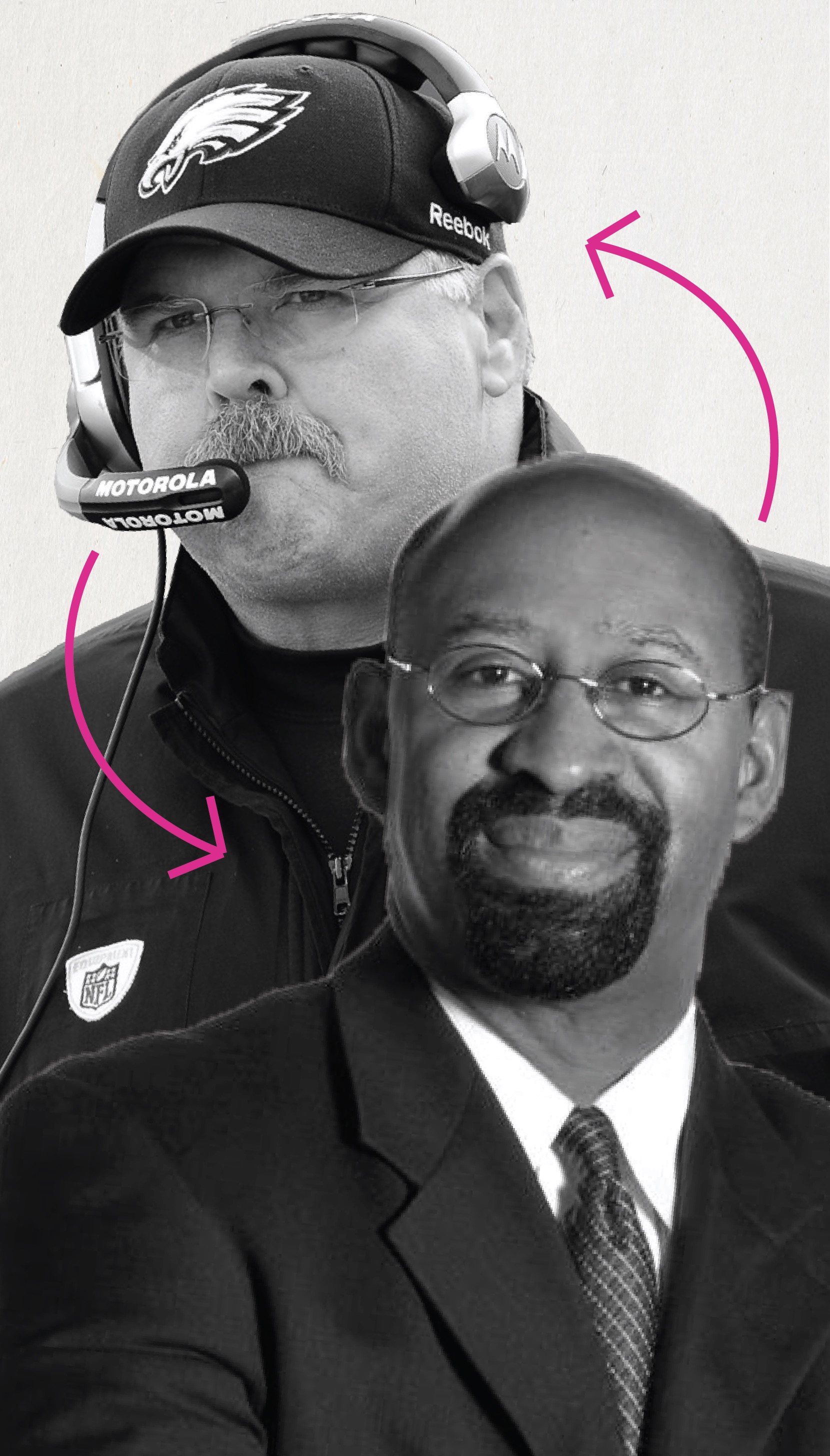
By the mid-’90s, the Eagles were no longer a playoff team. In fact, the 1998 Eagles were ranked last in most offensive statistics, leading to declining attendance, a tense locker room, fan unrest and the worst record in franchise history.
This is the team that Andy Reid (coach, 1999–2012) inherited in 1999. With his first draft pick, Reid selected quarterback Donovan McNabb and kicked off an era that brought competence back to the Eagles—who made the playoffs from 2001 to 2004 and 2008 to 2010.
This period was, objectively, one of the most successful tenures in Eagles’ history.
But Reid’s legacy for Philly fans is tied to all the little things Reid’s teams didn’t do to win the biggest games, represented perfectly by the 2004 Super Bowl loss to the Patriots.
On the last drive of the game, the Eagles had a chance to win. Stunningly, the team chose not to hurry up the offense, and it’s rumored that McNabb choked, vomiting from either a stomach bug or nerves.
Despite consistent success, Reid’s team is remembered for never fulfilling its potential.
Michael Nutter (mayor, 2007–2013), similarly, inherited a city in disarray. His predecessor, Mayor Jon Street was leaving amid another corruption scandal.
Nutter’s administration re-organized the Police Department, while positioning the city for the future by launching the Philly 311 service, becoming a sanctuary city and establishing offices for Sustainability, Innovation and the Creative Economy. These actions together contributed to Philly’s first population growth in 57 years.
Nutter was a well-liked mayor who brought legitimacy back to the Philadelphia mayorship. But like Reid’s Eagles, Nutter never reached his apex.
By the end of his administration, his relationship with organized labor had soured. A building collapse in 2013 highlights a reform of Licenses and Inspections that never came. And an awkward performance at the 2016 Democratic National Convention proved that he wouldn’t make the jump to national politics.
Oh well. We’ll always have “Rapper’s Delight.”

The Chip Kelly–Doug Pederson-Jim Kenney Era
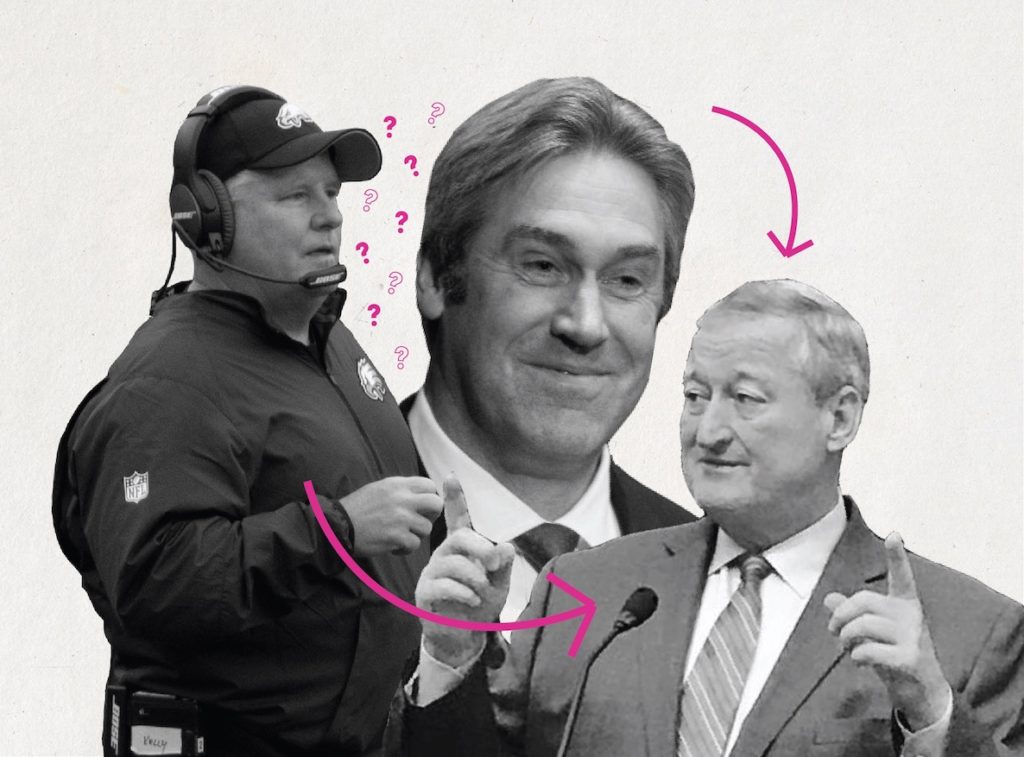
After a decade-plus of Andy Reid, Eagles fans were ready to move on to something new—and you couldn’t get much “newer” than Oregon Ducks college coach Chip Kelly (coach, 2013–2015).
Kelly brought a whole bucket of innovations into the NFL—big innovations like a spread scheme, the Read/Pass Option (RPO) Play and the fastest offense in football. And small innovations like custom protein shakes, sleep monitors and the circus of play-calling rooted in pop culture and subterfuge.
Some of Kelly’s ideas, like the RPO, continue to reverberate in the NFL. But his dictator-like management style and lack of emotional intelligence doomed his ideas to fall flat in execution, leading to his much-welcomed dismissal from the team.
After the Kelly era, Owner Jeffery Lurie needed a vanilla ice cream to counter whatever Little Baby’s flavor we had just tried. Enter Andy Reid assistant and former Eagles Quarterback Doug Pederson (coach, 2016-current), ranked the worst coaching hire by Pro Football Focus that year.
What we’ve learned about Pederson since then is that his collaborative coaching style brings the best ideas to the field, and his use of analytics serves as a foundation for aggressive (and exciting!) play-calling.
Pederson’s lack of ego allowed him to throw out the playbook after Wentz’s season-ending injury in 2017 and install the Chip Kelly RPO-offense that helped Nick Foles thrive—all the way to a Super Bowl MVP and win over the Evil Empi… er, Patriots.
No one will deny that Philadelphia is a city on the rise, but in the absence of the clear wins and losses of the football field, our political legacies are ones that Philadelphians will soon be compelled to decide.
So, is Mayor Jim Kenney regarded as the Chip Kelly or Doug Pederson of Philly politics? Like Kelly, he came in with big expectations from his “fans”—i.e. those who voted him in to office—and some statements have reverberated nationally.
He’s been a frequent critic of the President, doubled down on Philadelphia as a sanctuary city, took back control of local schools and made national news with his 2017 soda tax.
But that doesn’t mean he is, exactly, innovative. And what he considers his big win—the soda tax—is wildly unpopular with the locals.
On the other hand, Kenney is facing an assured second term but this time coming in like Pederson, with less fanfare and fewer expectations. Could he also surprise us by making real change to the issues that plague Philly—poverty, education, violence? Maybe?
Or maybe this moment will be remembered more for other city leaders:
District Attorney Larry Krasner (2018–present), Kelly-like in his wave of big ideas, dictatorial management style and often poor execution (so far), but a nationally-watched figure who could—also Pederson-like—help usher in a big criminal justice win for Philly.
Controller Rebecca Rhynhart (2018–present) entered office with little fanfare but like Pederson leveraged experience and popularity to enforce accountability and deliver results—making herself a possible Mayoral contender in four years.
Or are we waiting for Maria Quiñones-Sánchez (2007–present)—dubbed “a fierce advocate” by The Inquirer for her commitment to her constituents in Kensington—to capitalize on the promise of the current administration and finally lead Philadelphians to lift the proverbial Lombardi trophy?
With few opponents this November and re-elections not happening until 2021, the referendum on this administration isn’t imminent. No one will deny that Philadelphia is a city on the rise—the same way that the Eagles entered this season as a popular Super Bowl pick—but in the absence of the clear wins and losses of the football field, our political legacies are ones that Philadelphians will soon be compelled to decide. And what we decide will determine the future of Philadelphia politics.
While there’s little you can do about the Eagles season, our political future lies in your hands. Go vote!



